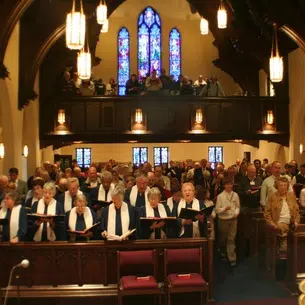By Khalid Abdelaziz and Aidan Lewis
KHARTOUM (Reuters) – An agreement to relaunch a political transition in Sudan and unlock billions of dollars in frozen international support faces many pitfalls, including distrust of the signatories and splits over issues left to a second phase of talks, analysts say.
The outline deal signed by the military and civilian parties on Dec. 5 also provides no guarantees that army leaders who staged a coup just over one year ago will cede real power, despite their promise to step back from politics, they say.
The military takeover in October 2021 plunged Sudan into uncertainty, triggering a long campaign of mass demonstrations against the army and derailing an economic and political opening begun after the overthrow of long-time leader Omar al-Bashir two and a half years earlier.
The framework agreement signed this month charts an exit from the crisis for the country of 45 million, which lies in a strategic position between the Red Sea and the Sahel, but sets no deadline and is vague on next steps.
These include tackling questions that fuelled tensions between the military and civilians when they shared power before the coup: reform of the security forces, justice for civilians killed during protests, dismantling Bashir’s regime, and a push to end decades of internal conflict in Darfur and other regions.
“These are the fundamental issues in Sudanese politics, the most complex points of dispute, and could be the future cause of the agreement’s collapse,” said Khaled al-Tijani, an analyst and editor of Sudan’s Elaph newspaper.
DEFENCE COUNCIL
The deal has been shepherded by international powers including the United States and Saudi Arabia that had haltingly backed the transition after Bashir’s removal.
On paper, it provides for the military to withdraw from politics and limits its formal role to a defence council overseen by a prime minister. But it allows for the military to control any reform of its own structures and for the government to seek its intervention in non-military matters in undefined cases.
There is also an agreement to keep the country’s current leader — army chief Abdel Fattah al-Burhan — and his deputy Mohamed Hamdan Dagalo, head of the paramilitary Rapid Support Forces, in their military roles, sources from civilian parties to the deal said. That would grant them temporary immunity over violence by security forces against protesters and in Darfur.
“To my eyes there is a sort of a door open to military intervention in civilian affairs, and a door closed to civilian intervention in military affairs,” said Magdi El Gizouli, a fellow at the Rift Valley Institute.
Western diplomats describe the agreement as a positive first step, and have called for the swift appointment of a civilian government.
The United States has expanded its policy on restricting visas for those believed to be undermining the democratic transition in Sudan, while saying it was working with partners to coordinate economic support.
In Khartoum, consultations are taking place to structure talks on outstanding issues, sources from civilian parties said. But it is unclear when a prime minister will be named, and analysts see an informal deadline of a month for the completion of the agreement as highly optimistic.
‘LIMITED PUBLIC TRUST’
Domestically, parties in a civilian coalition that had popular backing immediately after the uprising in 2019 and veterans of Khartoum’s political scene have lost standing, and are divided among themselves.
“The type of people who were in that hall when this deal was signed have quite limited public trust in them,” said Gizouli. “They’re looking at men in their 80s to design the future.”
Much depends on how far the civilian coalition which signed the deal — the Forces for Freedom and Change (FFC) — can rally the international community to put pressure on the generals and on regional powers including Egypt, the United Arab Emirates and Saudi Arabia that have close ties to Sudan’s military, said Kholood Khair of Insight Strategy Partners, a Sudanese think-tank.
But there is a risk that the military continue to meddle in economic and foreign policy, while passing the burden of governing amid a worsening humanitarian situation to civilians. “That would be, of course, very destabilising,” she said.
Young Sudanese who have turned out in their hundreds of thousands to call for democracy, despite more than 120 protester deaths recorded by medics, were back on the streets as the deal was signed.
They are planning more protests for Dec. 19, the fourth anniversary of the uprising against Bashir.
“It’s not possible to trust Burhan,” said Hassan Babaker, a 35-year-old protesting in Khartoum last week. “We fear he won’t allow the parties to reach an agreement, or will stage a coup against the agreement to favour (Bashir loyalists) and escape justice.”
(Reporting by Khalid Abdelaziz in Khartoum and Aidan Lewis in Cairo, Editing by William Maclean)




